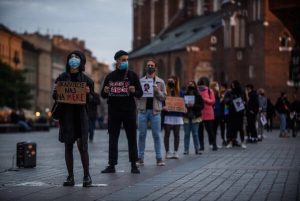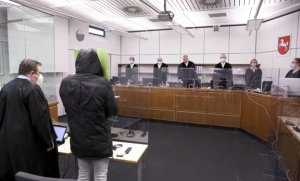By: Jacob Riederer
Impunity Watch News Staff Writer
STRASBOURG, France – On January 16, 2023, the European Court of Human Rights (ECHR) ruled that Lithuania violated multiple articles of the European Convention on Human Rights by permitting the Central Intelligence Agency (CIA) to detain and mistreat prisoner, Mustafa Ahmed Adam al-Hawsawi, at a CIA facility between 2005 and 2006.
 |
Al-Hawsawi, a citizen of Saudi Arabia, was first captured in Pakistan in 2003 during the American “War on Terror,” following the September 11, 2001, Attacks. After being transferred to the custody of the United States, he was moved to a CIA facility in Lithuania, known as “Detention Site Violet.”
While at Detention Site Violet, al-Hawsawi alleges he was subjected to physical and mental torture by the CIA. These allegations include sexual penetration by a foreign object, exposure to noise and light, continuous use of leg shackles, and solitary confinement. Al-Hawsawi claims he now suffers from many medical conditions, such as rectal hemorrhoids, hearing loss, and chronic migraines which he maintains were caused by the CIA’s enhanced interrogation techniques. Al-Hawsawi also alleges that he was denied access to communication with family members, counsel, and doctors during his detention.
Al-Hawsawi asserts Lithuania enabled the alleged inhumane treatment by permitting his detention there and allowing him to be transferred to other CIA detention sites where he was subjected to similar mistreatment. The ECHR agreed with many of his complaints and found that Lithuania had violated the prohibition against inhuman and degrading treatment, as well as al-Hawsawi’s rights to a fair trial, liberty and security. The court awarded al-Hawsawi €100,000 in compensation, and Lithuania agreed to comply.
Essential to the court’s judgment was evidence from a 2014 declassified U.S. Senate Report, which gave details on the CIA’s secret detainee program. The court also relied on prior cases including Al Nashiri v. Poland and Abu Zubaydah v. Lithuania for relevant testimony from expert witnesses.
After his time at Detention Site Violet and another facility in Afghanistan, al-Hawsawi was transferred to Guantánamo Bay, where he is currently on trial with the U.S. Military Commission for his alleged role in al-Qaeda and the 9/11 attacks.
For further information, please see:
European Court of Human Rights, Case of al-Hawsawi v. Lithuania, January 16, 2024
European Court of Human Rights, Press Release, Case of al-Hawsawi v. Lithuania , January 16, 2024



